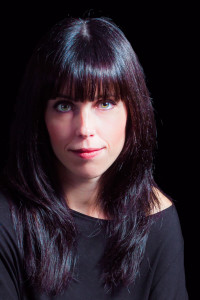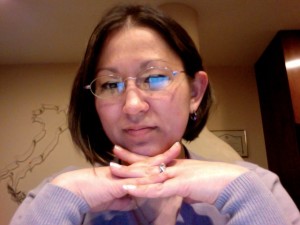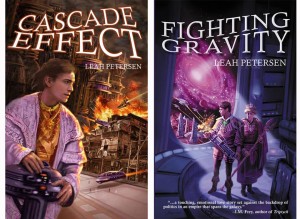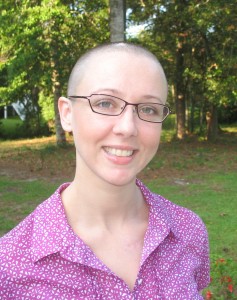A guest post by Lisa Mangum.
I love words. I love how they work and how they sound and how they look on the page. I’ve been reading since I was three, so perhaps it’s not much of a surprise that I chose a profession that is all about words.
I actually chose two professions: I am both a writer and an editor. I’ve been in the publishing business since 1997, when I was hired by Bookcraft as their Editorial Assistant. Bookcraft merged with Deseret Book in 1999, and I’ve been there ever since. After several years as an Assistant Editor, I recently switched responsibilities to work more in acquisitions and developmental editing. It’s the part of the job I love the most: finding that diamond in the rough and polishing it until it shines. Every time I see a manuscript turn into a book I think it is magic.
And nothing was more magical than seeing my own manuscript turn into a book. I wrote The Hourglass Door in 2007, and it was published by Shadow Mountain in 2009. I finished out the trilogy with The Golden Spiral and The Forgotten Locket. My most recent book is After Hello.
So, having been on both sides of the writing desk for so long, what is the best advice I’ve been given about writing?
Three things:
My first piece of advice comes from my friend Rick Walton who tells this to his students who aspire to be writers:
1. “Quit. But if you can’t—do the work.”
Writing is hard. It’s exhausting and exhilarating at the same time, but it is hard. So, before you get too far down that road of “being a writer,” you should think seriously about just quitting. Because if your heart isn’t in it, then there’s nothing wrong with not being a writer and being something else—with following your true passion.
But if there is something inside of you that won’t let you quit, that says, “No! I am a writer; I do have a story to tell,” then your only choice is to do the work.
Which leads me to Advice #2:
2. “Dream bigger.”
Recently, I was on a panel at SLC Comic-Con about Disneyland and one of the other panelist said that what she wished she’d known earlier in her career was that it was okay to dream bigger.
I love that! I think we as writers work hard to figure out what works for us and how to write a story and how to get published. And then we think, “Whew, I made it.” Well . . . maybe we need to dream bigger. If there is always a bigger dream out there beckoning to us, we’ll never stop reaching for it. And if we never stop reaching, we’ll simply get better and better until we reach that new dream.
So whatever it is you’re dreaming about—dream bigger.
3. “Don’t hurry. Don’t worry. Don’t stop.”
I saw this years ago written on a wall in the Innovations building at Disneyland, and I instantly resonated to it. Writing is a process; don’t hurry. Take time to learn your craft. Take time to enjoy the journey. Publishing is a process. Take time to learn the business. But don’t worry if you don’t get it right the first time. Don’t worry if you make mistakes, or if other people don’t understand your vision. Just—don’t stop.
I believe that there is a story inside each of us that only we can tell. Each of us has a valuable and unique voice. Don’t be afraid to use your voice. Don’t be afraid to tell your story.
So dream bigger. Do the work, and don’t hurry, don’t worry, and don’t quit.

Lisa Mangum has worked in the publishing department of Deseret Book since 1997. She specializes in editing fiction for the Shadow Mountain imprint and has worked with several New York Times best-selling authors, including Ally Condie, James Dashner, and Jason F. Wright. While fiction is her first love, she also has experience working with nonfiction projects (memoir, educational, cookbooks, etc.) and some children’s picture books. She loves finding that “diamond in the rough” in the slush pile, and she is particularly skilled in the developmental editing part of the process. Lisa is also the author of four national best-selling YA novels (The Hourglass Door trilogy and After Hello). She graduated with honors from the University of Utah, and currently lives in Taylorsville, Utah, with her husband, Tracy.





